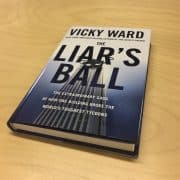Book Review: The Real Estate Game
Why I Liked Poorvu’s, The Real Estate Game
Whilst certain real estate technocrats may argue this book is overly simplistic, I politely disagree. I thoroughly enjoyed revisiting some of the more basic real estate fundamentals explored in the book, and appreciated Poorvu’s case study approach towards explaining these principles.
He uses numerous real life examples to educate the novice real estate investor on how to successfully value different types of properties, whilst reiterating key concepts which may be overlooked by the more advanced “student”. I found some of his advice as relevant today as it was back in ’99 when he wrote the book, and many of his nuggets of wisdom are widely applicable to investors, be they private or institutional.
Full Title: The Real Estate Game – The Intelligent Guide to Decision Making and Investment
Author: William J. Poorvu (with Jeffrey L. Cruikshank)
Quick note from Spencer: This is the first in a series of book reviews we’ll be publishing to A.CRE. This post is written by Guest Author, Matthew de Klerk. A big thanks to Matthew for taking time out of his busy schedule to offer thoughts on this and other important books for real estate professionals.
Just Say “No” to a Deal
One such piece of advice Poorvu gives to readers is to just say “no” to a deal, an attitude which can be difficult to adopt in the heat of the moment when momentum is strong and the deal is about to close. This is further compounded when various parties are involved and relationships, bonuses and egos are all on the line.
In today’s frothy real estate environment I believe it is increasingly important to be disciplined and self-aware in one’s deal analysis, acknowledging that a bad deal in a great market is still a bad deal. John Vogul once said – “real estate is an industry categorized by 10 year cycles and 5 year memories” and this rings true today – don’t get caught up in the hype and ignore the underlying real estate fundamentals.
“Never Get Carried Away in the Numbers”
Another highlight I took from the book centered around simplicity. Sam Zell often said that one should “never get too carried away in the numbers”. Poorvu discusses this too, citing the commonly used BOE valuation method as a prime example of real estate professionals avoiding over complication. In addition, deals often center around a few fundamental (often qualitative) factors which may not be accounted for in the numbers and it is important to account for this when completing one’s own property evaluation.
Poorvu goes on to mention that in reality, almost all investors use a “gut feel” approach when valuing a property. I believe that such a feeling is merely a combination of quantity (number of deals analyzed) and experience (time spent analyzing deals) and that an intuitive individual with a strong deal flow over time could easily develop this crucial skill.
Further to this, in today’s world of intricate Monte Carlo simulations and various other sensitivity analyses embedded in real estate valuation models, Poorvu once again reminds us that a model is only as good as its underlying assumptions. As such, an investor should always focus first on making accurate, realistic assumptions before getting swept up in the rest of the deal analysis.
It’s All About the People
Finally, we are reminded that underlying all real estate deals are people, and it is these people who make the real estate game fun, interesting, and worthwhile to play. This has prompted me to place a greater emphasis on many of the social aspects involved in a transaction such as first impressions, respect and likability.
Over time, I hope that this shift in attitude will improve my listening skills, helping me better understand the other persons perspective (be it the buyer, seller, broker, lender etc.). This is yet another vital lesson which Poorvu repeatedly discusses throughout the book, and it is something which I believe we can all relate to – understand people and you’ll understand real estate.
Download the Chapter by Chapter Executive Summary
If you enjoyed this review then feel free to check out the chapter by chapter executive summary for a more thorough analysis of the book.
Frequently Asked Questions about “The Real Estate Game” by William J. Poorvu








